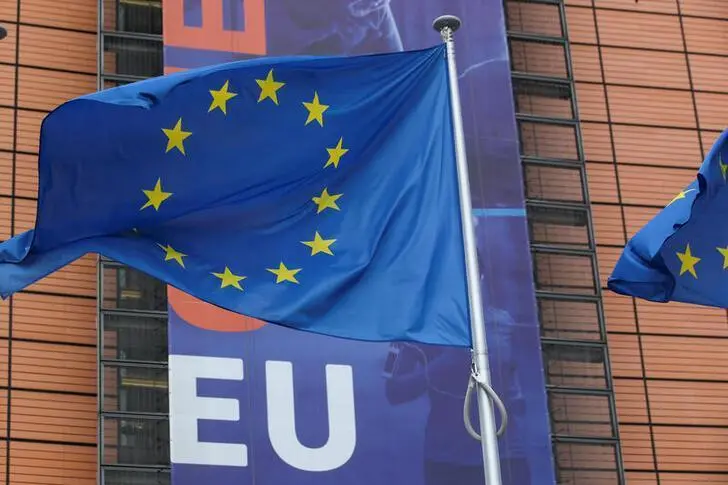PHOTO
BRUSSELS- The European Union should deepen sanctions on Russia to target its lucrative energy sector, the foreign ministers of Lithuania and Ireland said on Monday at the start of a diplomatic flurry over how to punish Moscow for its invasion of Ukraine.
The European Union (EU) and allies have already imposed a panoply of measures against Russia, including freezing its central bank's assets.
Russia's siege and bombardment of Mariupol port, which EU foreign policy chief Josep Borrell called "a massive war crime," is increasing pressure for action.
But targeting Russian oil, as the United States and Britain have done, is a divisive choice for the 27-nation EU, which relies on Russia for 40% of its gas. Some argued on Monday that the EU could no longer avoid such a step.
"Looking at the extent of the destruction in Ukraine right now, it's very hard to make the case that we shouldn't be moving in on the energy sector, particularly oil and coal," Irish Foreign Minister Simon Coveney said before a meeting of counterparts.
Lithuania's Foreign Minister Gabrielius Landsbergis concurred: "It's unavoidable we start talking about the energy sector, and we can definitely talk about oil because it is the biggest revenue to Russia's budget."
Diplomats cautioned, however, that energy is the most complex sector to sanction because each EU country has its own red lines. "Sanctions are exponential," one diplomat said. "The further you go, the more difficult it is to adopt them."
Ilustrating the complexity, Dutch Prime Minister Mark Rutte said the EU was still dependent on Russian oil and gas and could not cut itself off tomorrow.
EUROPEAN SPLITS
Diplomats told Reuters that Baltic countries including Lithuania wanted an oil embargo, while Germany and Italy, which depend on Russian gas, are wary of acting too quickly because of already high energy prices.
Sanctions on coal are a red line for countries including Germany, Poland and Denmark, the diplomats said. For others, such as the Netherlands, oil is untouchable.
Diplomats have also said a Russian chemical weapons attack in Ukraine, or heavy bombardment of the capital Kyiv, could be a trigger for an energy embargo.
Moscow itself has warned that such sanctions could prompt it to close a gas pipeline to Europe - another potential deterrent.
The foreign ministers' meeting was the first of a busy week of talks in Brussels. No decision on potential energy sanctions was expected on Monday.
U.S. President Joe Biden arrives on Wednesday for talks with transatlantic alliance NATO's 30 members, the EU, and a Group of Seven (G7) format including Japan, designed to harden the West's response to Moscow.
The Kremlin has so far not been moved to change course in Ukraine by EU sanctions, including on 685 Russians and Belarusians and on Russian finance and trade.
A fifth round of sanctions will include more names on EU blacklists. France says that if the situation worsens there should be no "taboos" in terms of sanctions, French officials said.
Russia invaded Ukraine on Feb. 24, calling it a "special operation" to demilitarize Ukraine and purge it of dangerous nationalists. Ukraine and the West say these are baseless pretexts for aggression.
Defence ministers will also discuss a new "strategic compass" military strategy to adapt the EU for changing geopolitical reality. The document has been tweaked to strengthen parts related to Russia, an EU official said.
(Reporting by Sabine Siebold, Robin Emmott, Ingrid Melander, Bart Meijer, John Irish Writing by Robin Emmott and Ingrid Melander, Editing by Angus MacSwan and Andrew Cawthorne)





















